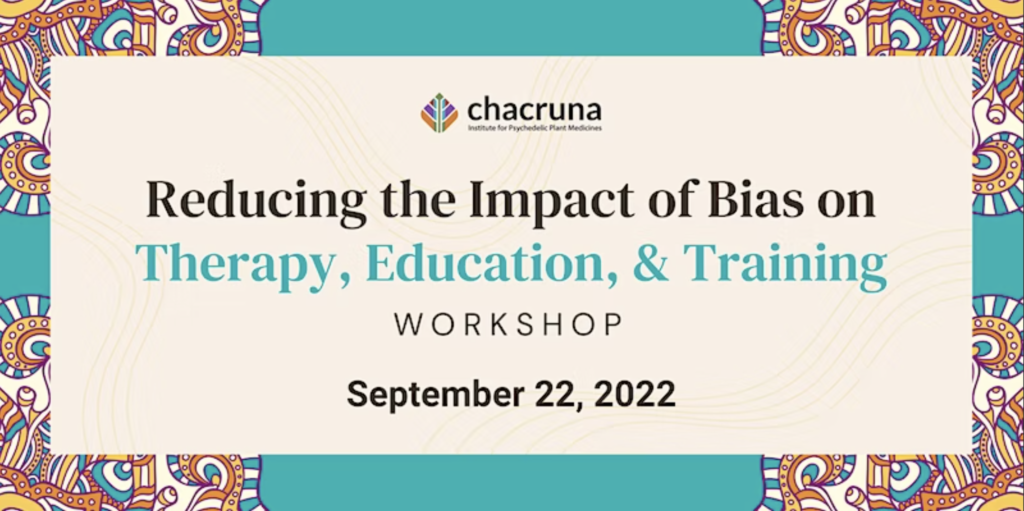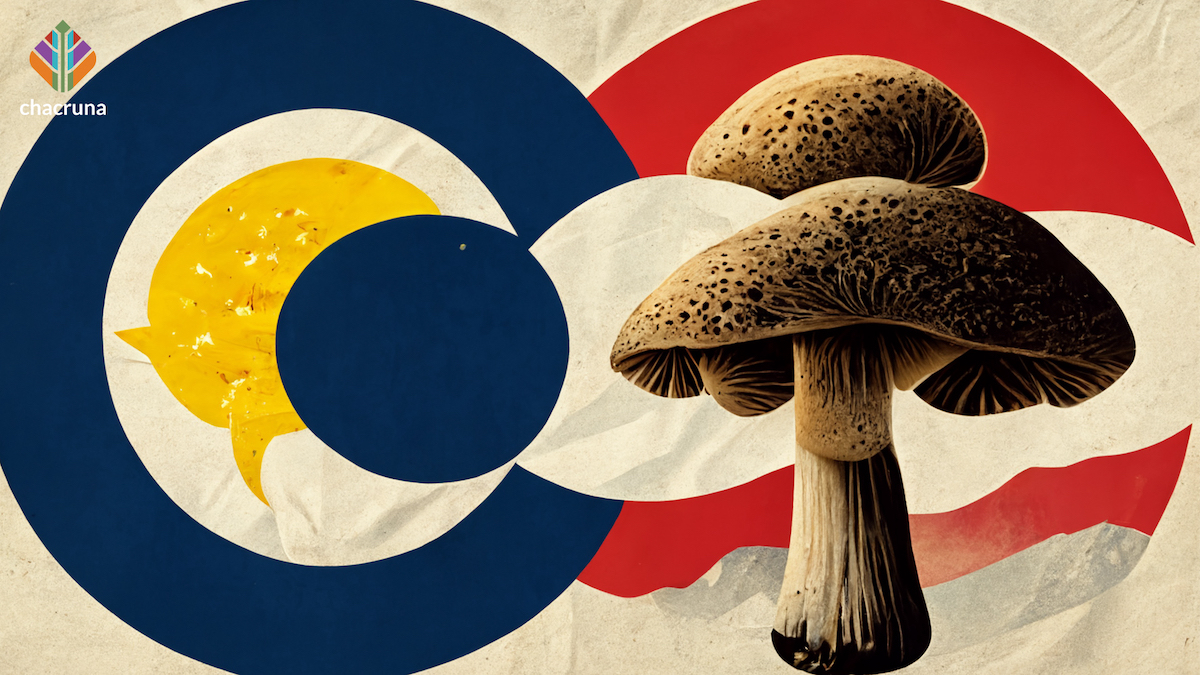- Why Colorado’s Natural Medicine Health Act is the Right Measure to Access Natural Psychedelic Medicine: Responding to Critics of NMHA - September 18, 2022
- Psilocybin Mushroom Policy Review Panel: 2021 Comprehensive Report - November 10, 2021
- Controversies Around California’s Psychedelic Decriminalization Law Senate Bill 519 - July 29, 2021
In six weeks, Coloradans will vote on a historic ballot measure that will decriminalize four psychedelics and provide safe, regulated access to these natural medicines at treatment centers in the coming years. The ballot initiative is known as the Natural Medicine Health Act (NMHA). Specifically, NMHA will do the following:
- By late 2024, allow the supervised use of psychedelic mushrooms by individuals aged 21 and over at licensed facilities and require the state to create a regulatory structure for the operation of these licensed facilities;
- Allow the state to expand the types of substances that may be used in licensed facilities to include the use of additional plant-based psychedelic substances—dimethyltryptamine (DMT), ibogaine, or mescaline (excluding peyote)—starting in 2026;
- Immediately decriminalize for personal possession, growing, sharing, and use—but not the sale—the natural psychedelic fungal and plant medicines containing psilocybin; DMT, ibogaine, and mescaline (excluding peyote) by individuals aged 21 and over; and
- Allow local governments to regulate the time, place, and manner of operation of these facilities, while prohibiting local governments from banning licensed facilities, services, and use of natural psychedelic substances.
Coloradans should have the right to heal with natural medicines; we are in a mental health crisis in the state.
Coloradans should have the right to heal with natural medicines; we are in a mental health crisis in the state. The initiative was developed throughout 2021, in collaboration with the same on-the-ground activists who pushed through Denver’s decriminalization of psilocybin, along with several other community stakeholders that included BIPOC voices. In response to months of community feedback, the initiative was improved over time to include numerous social justice considerations and sidebars. These include:
- No state agency can regulate the private personal possession, home cultivation, sharing, or use of these natural medicines for adults over 21.
- Communal healing will be immediately decriminalized by this measure. This measure protects the work of traditional medicine people and shamans from criminal prosecution and is not subject to state licensure or business regulation since there are no sales of natural psychedelic medicines.
- The limit in terms of quantity is a personal possession amount, including an amount necessary to share with other adults. Private sales will remain illegal in Colorado.
- NMHA limits the number of licenses per company to five, ensuring there will not be any corporate takeovers or monopolies in Colorado on treatment centers, encouraging locally owned and operated clinics.
- NMHA requires that the state-licensed facilities provide sliding-scale fees to ensure access to these medicines in a regulated environment by low-income people.
- NMHA also requires that licensure as a facilitator under the act can’t be so expensive or onerous as to exclude low-income people from licensure.
- The measure creates an access fund to subsidize access for low-income people and Indigenous people at licensed facilities.
- The measure creates an advisory board with mandatory BIPOC representation and gives the advisory board veto power over whether the state moves forward with regulation beyond psilocybin in 2026.
- NMHA makes clear that no one can lose their children in a custody dispute, or have their children taken away from them as part of a social services case, merely for the possession or use of natural medicines.
- NMHA creates mandatory record sealing for any prior offense that is now legalized under the measure. The measure also is retroactive, meaning any existing cases have to be dismissed.
- NMHA says that possession of natural medicines can’t form the basis of reasonable suspicion or probable cause for a search.
For more information on the measure, see the campaign website: https://naturalmedicinecolorado.org/
In spite of these historic provisions, a small group of activists who participated in the community dialogue are spreading misinformation about it.

Join Chacruna’s Workshop: Reducing the Impact of Bias on Therapy, Education, & Training
In spite of these historic provisions, a small group of activists who participated in the community dialogue are spreading misinformation about it. For example, SPORE co-Executive Director Matthew Duffy recently posted a guest editorial in the Denver Post opposing NMHA, alleging wrongly that the measure is a corporate takeover of psychedelics and that somehow personal use is not sufficiently protected. See Duffy’s editorial here. In many cases, these community activists are making unsubstantiated claims and stoking baseless conspiracy theories.
Critics ignore important criteria like the five-license limit that will make corporate consolidation impossible.
There is no evidence to support the claim that NMHA is a corporate takeover of psychedelics. I sat at the drafting table and at no point did some rich philanthropist come in and dictate the initiative language to ensure corporate control of psychedelics. Critics ignore important criteria like the five-license limit that will make corporate consolidation impossible. The five-license limit, coupled with the inability of local governments to ban these centers, will ensure there will be numerous local clinics in every community with opportunities to succeed in Colorado. Moreover, broader access will be facilitated by the extensive decriminalization in the measure, and critics fail to acknowledge that.
Similarly, critics fail to acknowledge the requirement for sliding-scale fees to ensure low-income people are not denied access to treatment. Bashing NMHA without mentioning that it creates an access fund to facilitate access for low-income communities or noting that the initiative says that licensing fees can’t be so exorbitant that low-income people can’t afford to become licensed under the program is misleading. The NMHA is the most progressive and social justice oriented psychedelic initiative ever drafted and deserves recognition as such.
Critics often completely ignore the fact that communal healing is decriminalized by this measure and will immediately result in broader access regardless of what happens in the regulated system.
Finally, critics complain that the initiative has vague language regarding personal possession of these natural medicines. First, there is a clear limit: personal possession. If there is evidence someone is possessing with the intent to distribute natural medicines for profit, that’s not allowed by the initiative. Home cultivation and sharing of medicines is allowed; private sales are not. Critics often completely ignore the fact that communal healing is decriminalized by this measure and will immediately result in broader access regardless of what happens in the regulated system. The Denver decriminalization initiative that many of the critics supported had the exact same language regarding personal possession (and did not include provisions for sharing). It’s puzzling why many of these critics supported the Denver initiative but now oppose the statewide initiative that goes far beyond that. Following the logic of critics, the measure should be defeated and prosecutions should continue of low-level personal possession cases.
NMHA does exactly what community activists requested: decriminalization first, regulation later, exclusion of peyote, and extensive social justice sidebars.
The initiative was developed with an extensive community input process that many critics participated in. NMHA does exactly what community activists requested: decriminalization first, regulation later, exclusion of peyote, and extensive social justice sidebars. While no initiative is perfect, and there will be challenges during the implementation phase assuming it passes, NMHA deserves the support of reform advocates.
Art by Trey Brasher.
Take a minute to browse our stock:
Did you enjoy reading this article?
Please support Chacruna's work by donating to us. We are an independent organization and we offer free education and advocacy for psychedelic plant medicines. We are a team of dedicated volunteers!
Can you help Chacruna advance cultural understanding around these substances?
















